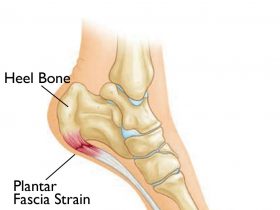The World Health Organization reported back in October 2021 that one of the leading causes of vision loss is cataract. In the same report, the WHO stated that 1 billion vision impairment cases out of 2.2 billion were preventable or remain to be cured. It is actually surprising that cataract remains to be a top cause of vision impairment when there are already treatments and procedures in place to address this eye condition (https://asiaretina.com/cataract-surgery/).
What could be the reason for this?
A probable reason why cataract remains a major contributor to the staggering statistics of vision impairment is because a lot of people overlook the importance of prioritizing their eyes’ health. By this we mean that not everyone makes it a point to get regular eye checkups. In fact, some may be able to admit that the only time that they visit an eye clinic is when they are starting to notice changes and have difficulties with their eyesight. It is imperative for individuals, especially those who are advanced in age, to get their eyes checked at least once a year. By doing this, the chances of detecting certain eye conditions at an early stage are high and treatment plans can instantly be put in place to slow its progress or provide for a permanent cure outrightly.
Cataract, for example, is an eye condition that develops slowly. It may not be as bothersome during its onset, but as it progresses and starts to cloud areas of your eyes, it will eventually lead to interference with your vision. This will definitely affect your quality of life.
You do not have to wait until the condition becomes full blown before you get treated for cataract. However, if you have delayed getting eye checkups and the cataract is at an advanced phase, then it’s best to talk to your ophthalmologist about cataract surgery.
Cataract surgery at a glance
Cataract surgery is a surgical procedure done for the removal of the lens of the eye when it becomes cloudy due to cataract. The lens is then replaced with an artificial lens implant, otherwise known as intraocular lens (IOL). Here’s what to expect during a cataract surgery:
- You will be sedated fully so as not to feel any pain during the surgery
- Your ophthalmologist will use a blade or a laser to make small cuts close to the cornea’s edge
- Your ophthalmologist will reach the lens with the cataract through the incisions, then break and remove it from the eye.
- Your new artificial lens is then set in place
- Your eye is then covered with a shield to protect it from any injury
Here are 5 things you should know before getting cataract surgery.
- Cataract surgery is performed by an ophthalmologist.
You may have heard about the three professions in the field of Optometry and Ophthalmology: Ophthalmologist, optometrist, and optician. Do not get confused. Among the three, only an ophthalmologist is allowed to perform cataract surgery. Ophthalmologists are medical or osteopathic doctors who practice and specialize in caring for the eyes and vision. They have undergone medical and surgical training and are licensed to diagnose and treat any condition that affects the eyes.
- There are several artificial lenses or IOLs available to suit your visual needs and lifestyle.
Your doctor will recommend an artificial lens that is fit for your eye conditions and personal lifestyle. The four types of IOLs for cataracts are:
- Monofocal IOL – Commonly used IOL. Monofocal IOL works best by giving clear vision focused at one distance.
- Monovision IOL – Uses different IOLs in each eye. A far-sighted monofocal IOL is replaced in the dominant eye and a near-sighted IOL is used for the non-dominant eye.
- Multifocal IOL – Can simultaneously focus on near and far distances.
- Toric IOL – Best for people with astigmatism, this IOL works to correct refractive error.
You can consider the following questions to help your eye doctor decide on the best artificial lens for you:
- Am I diagnosed with other eye conditions?
- Is the level of my astigmatism anywhere between moderate to high?
- Do my daily activities depend on near or far vision?
- Am I able to afford premium IOLs?
- There are risks involved in cataract surgery.
It is important that you discuss with your ophthalmologist about the risks and complications relating to cataract surgery prior to scheduling your operation. Below are the risks you can expect from this procedure:
- Appearance of glare or halos in the vision
- Bleeding, damage, infection, or pain in the eye
- Blurry vision
- Eyelid drooping
- Dislocation of implanted IOL
- Glaucoma
- Loss of vision
- Retinal detachment
- Secondary cataract
- Swollen retina
- The downtime for recovery may take several days or weeks.
Any feeling of discomfort following a cataract surgery should cease after a few of days. However, your recovery will also depend on several factors, such as your body’s ability to heal or the size of the cataract removed and the complexity of the surgery. It could take between four to six weeks to recover fully from this procedure. With this in mind, be sure that you have planned your schedule accordingly as you will need to skip work or trips while your eyes are healing.
- There is no need for hospital stay after the surgery.
Cataract surgery may be performed in a hospital or at your ophthalmologist’s clinic. The operation is done on an outpatient basis as the procedure is completed in under an hour. Your doctor will ask that you come with a companion on the day of your surgery as you will need assistance with driving or commuting after the operation.
Where to go for your cataract surgery
In Singapore, you can visit Asia Retina to get your eyes assessed for cataracts. After a thorough assessment by Dr. Claudine Pang, a treatment plan will be recommended for your eye condition. If cataract surgery is needed, you may opt to choose a surgery that is performed with the use of a Bladed or a Femtosecond laser.
Cataract surgery in Singapore can cost anywhere between $1,300 and $6,000. Note that Singaporeans and PRs can use their Medisave account to claim cataract surgery expenses of up to $2,450 per eye.
You can drop by Asia Retina’s clinic at #15-10 The Paragon, 290 Orchard Rd, Singapore or visit their website to know more about cataract surgery and their other services.
Asia Retina – Eye specialist (Ophthalmologist) in Singapore, Dr Claudine Pang
#15-10 The Paragon, 290 Orchard Rd, 238859
+65 6732 0007
https://asiaretina.com










